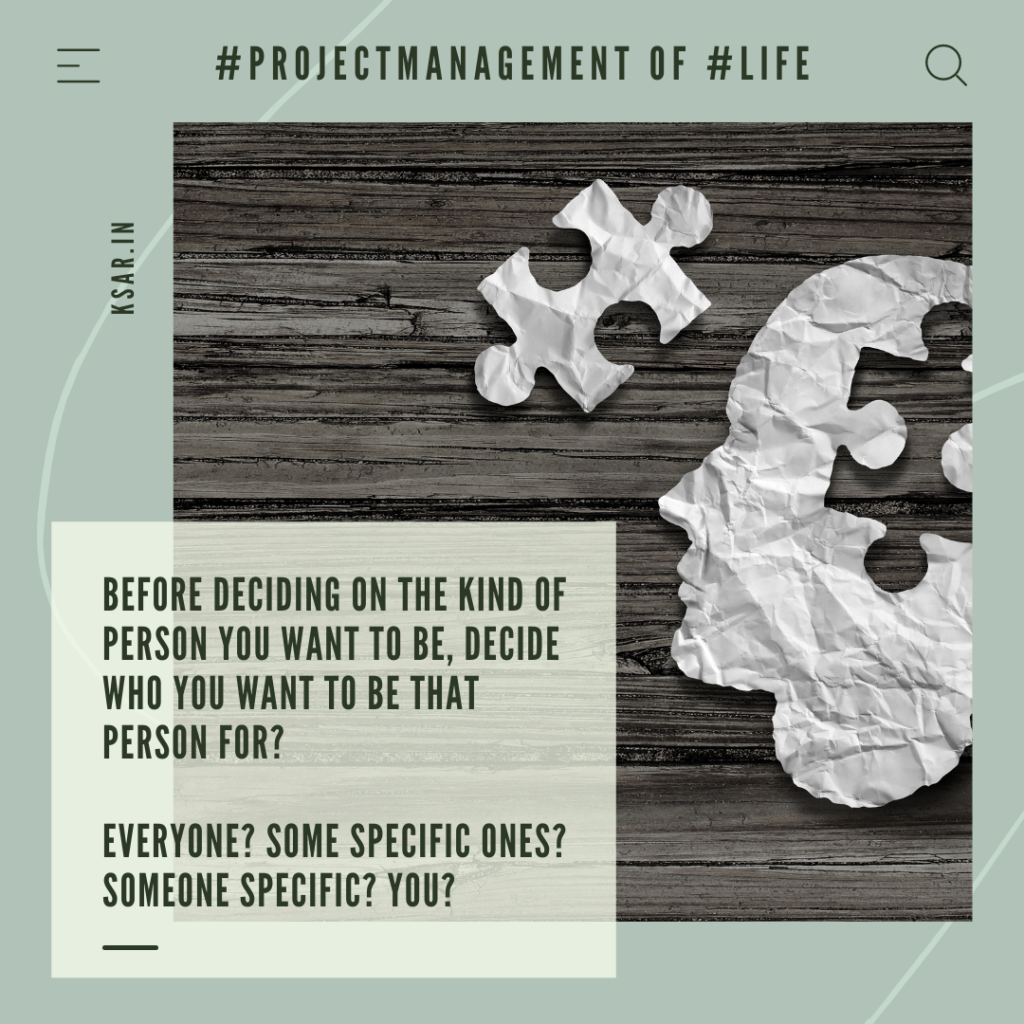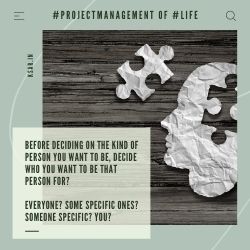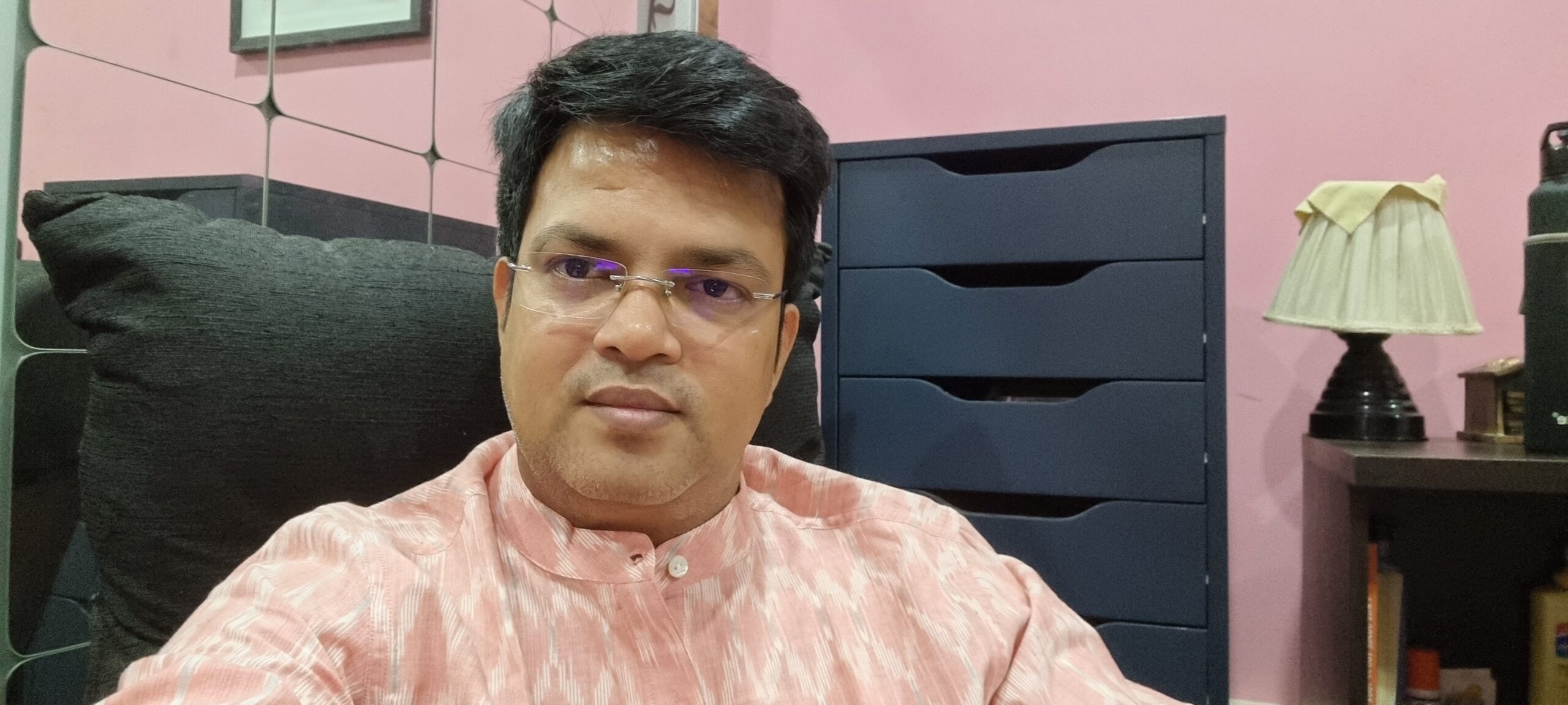But more significantly, who do we want to be this person for?
Most of the Value System and Leadership sessions I’ve attended emphasize on understanding, what kind of person one is, to decide the priorities of life. The intent is more IKIGAI driven, to create a value circle of what is good for you, what you’re good at, can give you sustenance, is good for world etc.
And all that invariably makes a thought come to forefront, for whom are we becoming that person?
Because in context of woman/man being a social being and more a professional being, all our endeavors circle around interacting with other persons! So, if we are a certain kind of person, it has to be for someone!
We all put on a mask, before going out to be our best selves, while making a name, earning money, fulfilling the purpose that we have carved out for ourselves. And in pursuit of this, the one inevitability is interacting with other persons. This should make all of think, when we are becoming a certain kind of individual, we are becoming that for the persons we are interacting with, don’t we!
Some of us would be inclined to debate, the kind of person we are, or we become, or we attempt at becoming, is also for having a certain approach to how we handle incidents, how we drive, both car and life, how we react to situations, how we are, even when we are alone. And I agree with all this.
And then, we must ask, all that we outlined in above paragraph, are they devoid of any indirect or direct human interactions? At least, aren’t they influencing someone in vicinity? Even when we are alone, aren’t we being judged, by someone?
That drives my point – who we are, or we become, or we try to be, eventually influences someone in our life, with how so ever lengthy butterfly effect it may have in between our butterfly flapping it’s wing and their storm coming on.
Hence, the thought. For who are we becoming a certain person? And that also gives us a leverage/bandwidth to be a different person for different audience.
And if you are reading this, you must be thinking, yes! I already am doing that! So, my approach here is simply, this.
It’s significant to understand why are we doing it. It’s simply not a defense or coping mechanism. It has science. And the more we understand the kind of (all these different) persons we are, the better our goals would be!

Read and Review the shorter version of this on your LinkedIn

